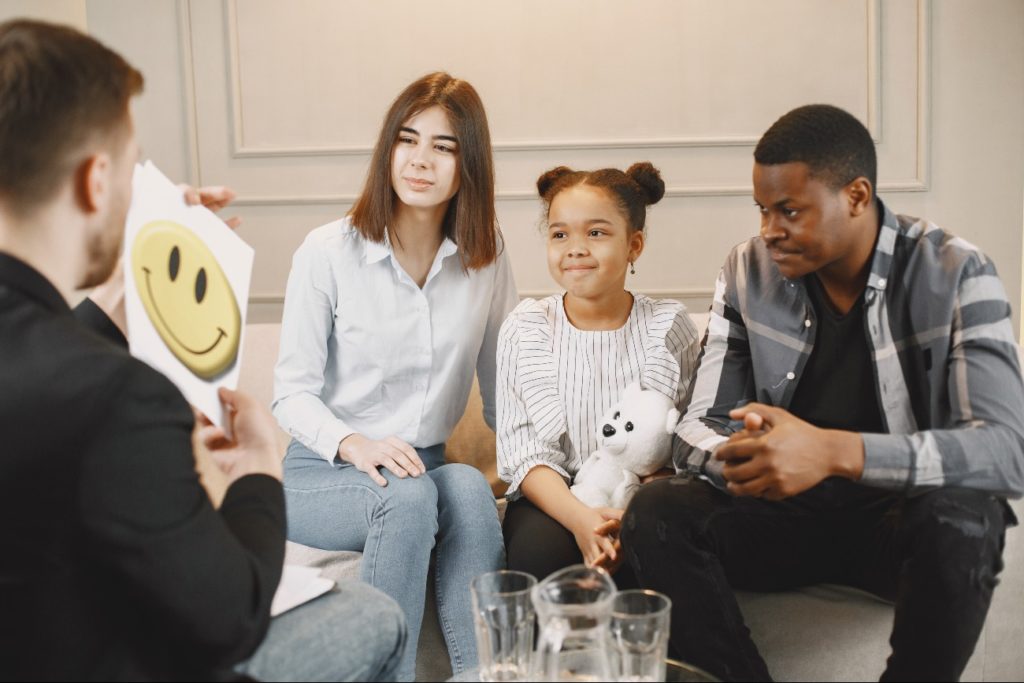Updated on 10/13/23
Content Reviewed by Cameron Bolish, M.Ed., CEO of PaRC
Addiction is a family disease. There is no question that when one family member is experiencing addiction, other family members will also share its consequences. While most treatment programs facilitate treatment solely for the individual struggling with substance use, this disregards the rest of the family trying to cope. In this case, the family is left waiting for the person in treatment to make progress.
Several treatment programs have addressed this gap in treatment, which has resulted in the development of family programs or family services. Family programs help to support family members and the individual that is going through treatment by offering education and encouraging interaction with families that are going through the same process. It is essential to recognize the benefits that family programs have on an individual’s recovery and, in turn, utilize treatment centers that specifically offer these programs.
The Impact of Substance Use on Family Dynamics
The family unit is the primary source of nurturing, learning and attachment for developing brains. As each member grows and changes, the other members will adapt as best as possible to create a functioning family dynamic.
The entire family unit experiences the effects of substance use and substance use disorders (SUDs). Each family and its members are uniquely affected by the individual that is using substances. Nevertheless, having a family member who uses substances or has an addiction can also push other family members into potentially engaging in substance use.
While risk factors such as childhood trauma, neglect and abandonment can contribute to substance use, some individuals may develop a SUD without any apparent risk factors. Regardless, research shows that treating an individual without family involvement can limit the effectiveness of treatment for two distinct reasons. First, it ignores the impact that SUDs have on the family unit and leaves family members untreated. Secondly, it neglects to recognize the family unit as a support system for motivating change.
The Components of Family Treatment Programs
Every family treatment program is unique to the treatment facility. However, a few components tend to overlap between every family program. These components include, but are not limited to:
- Education: Family members will become educated about the mechanisms behind addiction. They will learn that they did not cause the addiction and therefore cannot control or cure it. Education services will likely also cover topics related to codependency, enabling and boundaries.
- Family counseling: Family counseling will help family members cope with their own emotions surrounding their loved one’s substance use and associated consequences. Counseling will typically also allow members to instill protective factors against substance use and addiction in their own lives while learning how to heal as a family unit.
- Interactive support groups: Even if a treatment facility does not offer a family program, they will likely be able to provide you with valuable community resources such as support groups. There are support groups for nearly every cause. Sometimes parents would like their own support group without their children being involved, which is the beauty of parent support groups. Similarly, specialized family process groups offer a safe space for family members to voice feelings, concerns and struggles to other families going through a similar experience.
Family Treatment Programs Help Members to Feel Less Alone
One incredible benefit of family programs is that they help family members to feel less alone in what they are going through. Whether it be anger, depression, grief or uncertainty, family programs encourage family members to work through uncomfortable feelings by participating in counseling and support groups. Family members need a safe space to talk through their concerns and ask questions without feeling out of place, so family programs are crucial.
Family Treatment Programs Make Members Feel Valued
Another benefit of family programs is that they make family members feel valued. When a sibling or child is struggling with addiction, it is normal for parents and siblings to feel a sense of guilt. However, family programs can help provide the hard facts that combat feelings of guilt, such as addiction can happen to anyone and is not a result of moral weakness. These programs can also offer family members ways to actively support their loved one’s recovery journey.
Family Treatment Programs Help Prevent Relapse
The most notable benefit of family programs is that they can help actively prevent relapse for the individual seeking recovery from substance use. When the entire family unit is educated and involved in their loved one’s recovery, there is less judgment and more compassion. Family members will learn how to support their loved ones without enabling them and create a more peaceful lifestyle for the entire unit.
Prevention and Recovery Center (PaRC) is a drug and alcohol addiction treatment center that offers family programs. We also offer a two-day intensive family program for patients, along with our traditional family program. During the programs, families will become educated about addiction as a disease and interact with counselors and families experiencing a similar situation. To learn more, call us today at (713) 939-7272.
